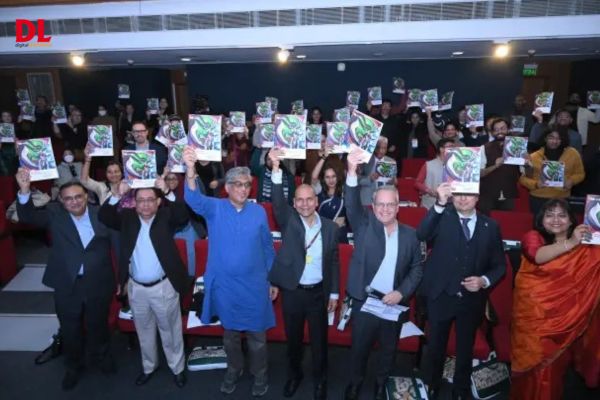
The UNESCO Regional Office for South Asia has unveiled the sixth edition of its flagship annual report, titled “Rhythms of Learning”, which explores the transformative role of culture and arts education in India. This edition, focused on Culture and Arts Education, underscores its potential to foster creativity, promote inclusive learning, enhance social cohesion, and advance sustainable development.
As a nation with a rich cultural heritage, India holds unique opportunities to integrate arts into education, creating a holistic approach to learning. The report is a landmark initiative, being the first to adapt UNESCO’s Framework for Culture and Arts Education to the Indian context. By tailoring global strategies to local needs, it provides actionable insights and strategies to strengthen arts education across the country.
Tim Curtis, Director and Representative of the UNESCO Regional Office for South Asia, emphasised that culture and arts education fosters creativity, critical thinking, and empathy, skills vital for addressing modern challenges. Authored by the Srishti Manipal Institute of Art, Design & Technology, the report leverages a mixed-methods approach, combining policy analysis, interviews, surveys, and case studies. It highlights innovative initiatives from diverse regions, showcasing successful arts education practices.
Speaking on the occasion, Shri Sanjay Kumar, Secretary of the Department of School Education & Literacy, expressed optimism about the report’s impact: “The Department of School Education and Literacy and UNESCO share a mission of promoting India’s cultural diversity. I am pleased to see this report on ‘Culture and Arts Education’ and hope it inspires initiatives that harness the power of culture and arts in education.”
The report aligns closely with India’s National Education Policy (NEP) 2020 and the National Curriculum Framework (NCF) 2023, both of which advocate Art-Integrated Learning (AIL) and emphasise preserving traditional knowledge systems. Additionally, it provides a roadmap to strengthen access, equity, and institutionalisation of arts education ecosystems nationwide.
Key Recommendations
The report concludes with ten actionable recommendations for advancing culture and arts education in India, including:
- Establishing a culture and arts education steering committee.
- Enhancing rural-urban connectivity through arts education.
- Strengthening teaching capacities in arts education.
- Promoting arts education as a lifelong learning tool.
- Leveraging technology to improve accessibility.
- Creating centres of excellence in arts education.
- Introducing new undergraduate programs in culture and arts education.
- Developing a national repository for culture and arts education.
- Implementing an effective assessment system for pedagogy.
- Establishing a dedicated culture and arts education fund.
Also Read: IIT Madras Launches ‘Fine Arts and Culture Excellence’ Quota for Undergraduate Admissions
The launch event was highlighted by a live instrumental performance curated by the Naadvistaar Foundation, celebrating the integration of arts and education as a source of creativity, cultural pride, and shared humanity.
This comprehensive report serves as a vital resource for educators, policymakers, and stakeholders aiming to harness the power of arts to transform India’s education landscape.




















